
First Discipline Specific Faculty Council Seminar (19 August 2025)
The Department of Physiology, University of Health Sciences (UHS), successfully organized first seminar titled ‘Updates in Physiology Research’ on 19th August 2025 at the Prof. Tania Shakoori Conference Room, under the visionary leadership of Vice Chancellor UHS Prof. Ahsan Waheed Rathore and Pro-Vice Chancellor Prof. Nadia Naseem.
The event was conducted under the auspices of the first Discipline-Specific Faculty Council (DSFC) for Physiology, established to foster collaboration and innovation within the discipline. The event brought together faculty members, researchers, and scholars from UHS and its affiliated colleges, creating a vibrant academic environment for knowledge sharing.
Distinguished national and international speakers delivered insightful talks on cutting-edge topics, including innovations in physiology research training, novel insights into osteoporosis, and the molecular mechanisms underlying metabolic syndrome.
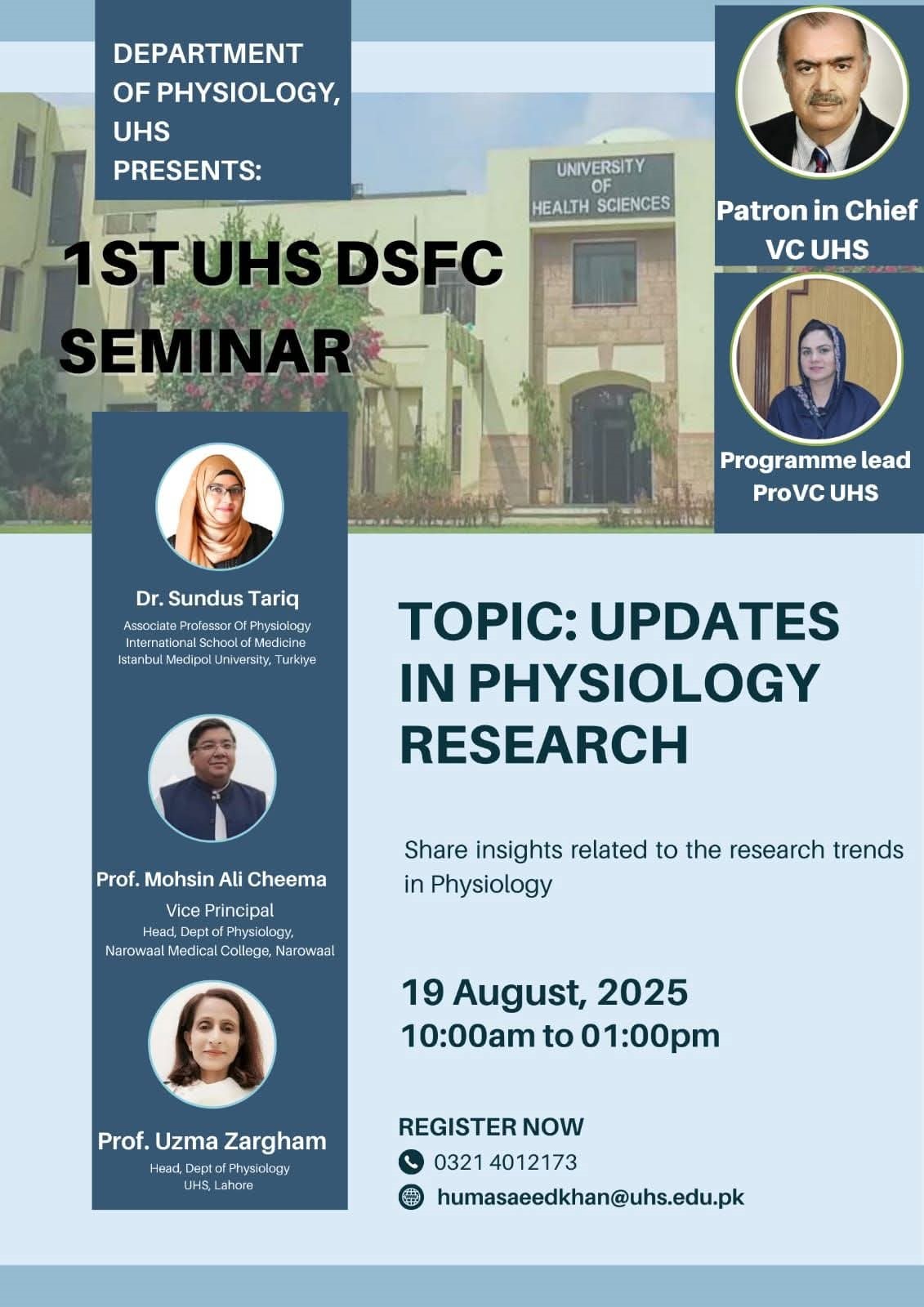
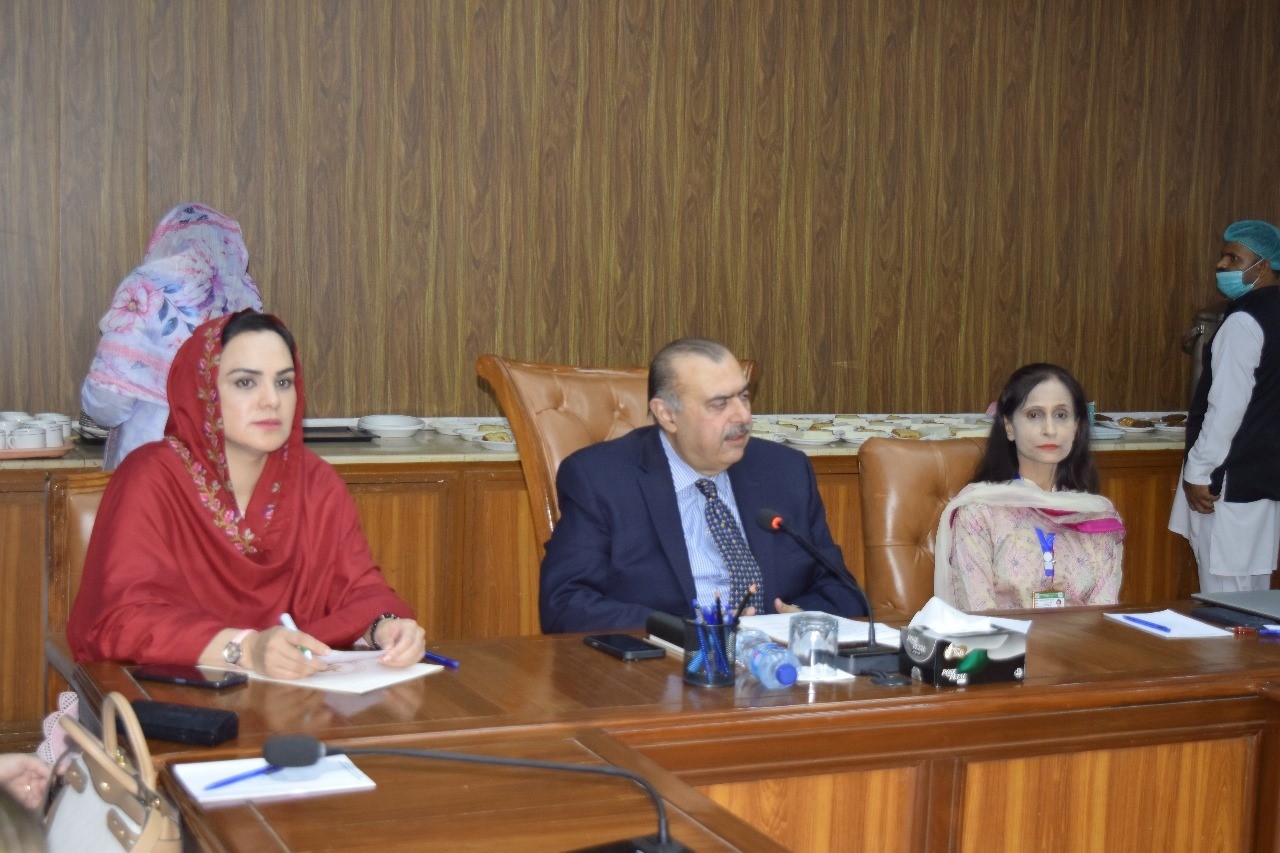
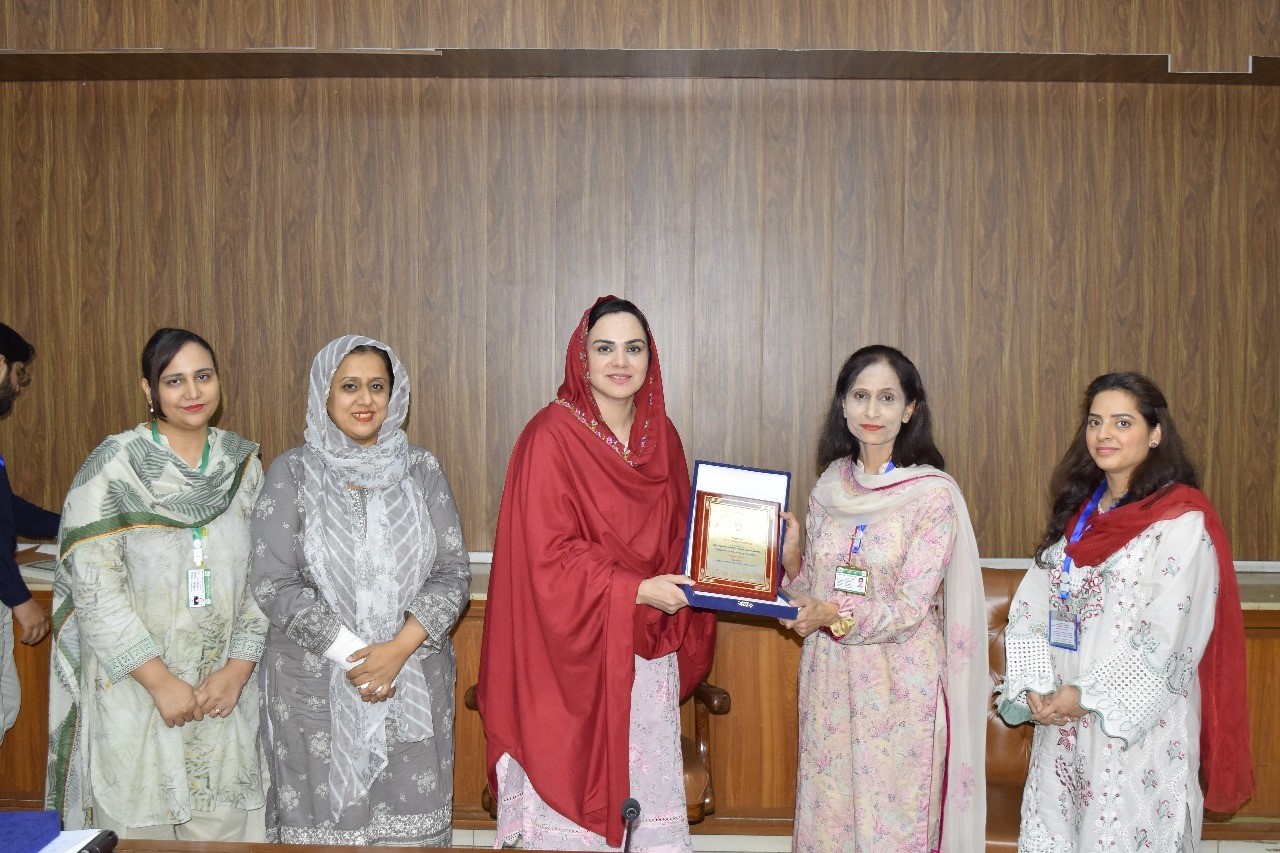
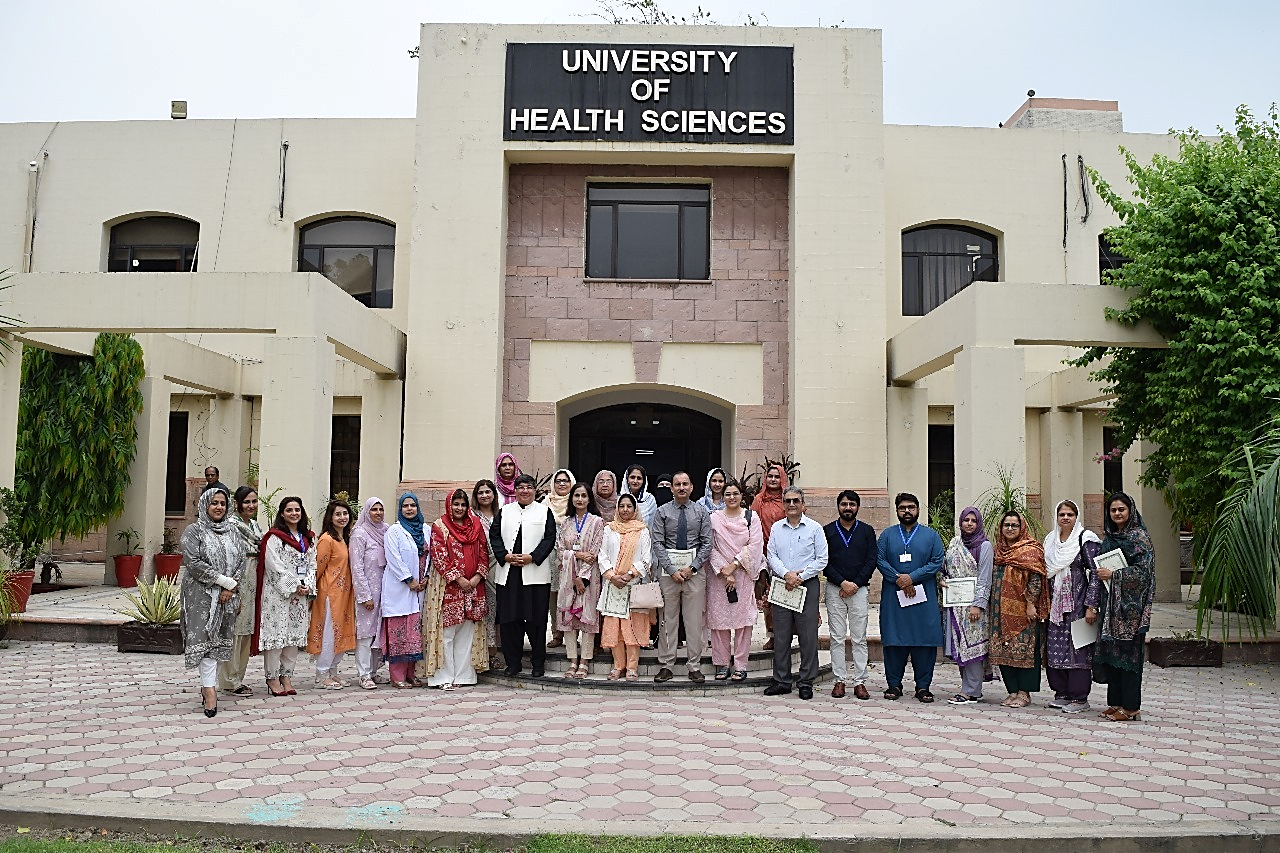
The Department organized a series of Journal Club Activities during the years 2022-2023. CME hours were issued
in collaboration with Pakistan Medical Council (PMC) and were approved by the Department of Medical Education, UHS.
The prominent faculty members of international institutions participated in these activities, including:
Journal Club Activities
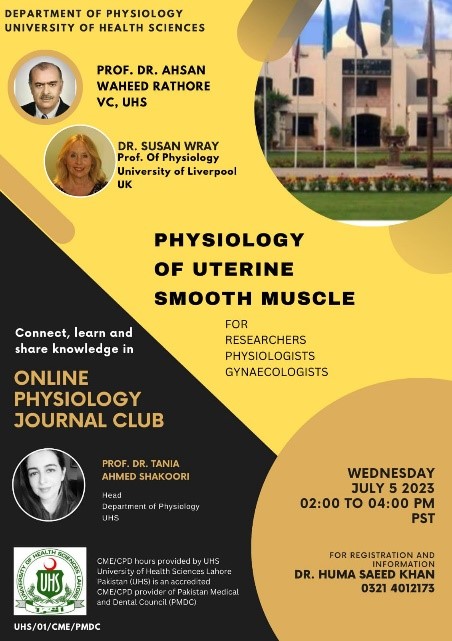 |
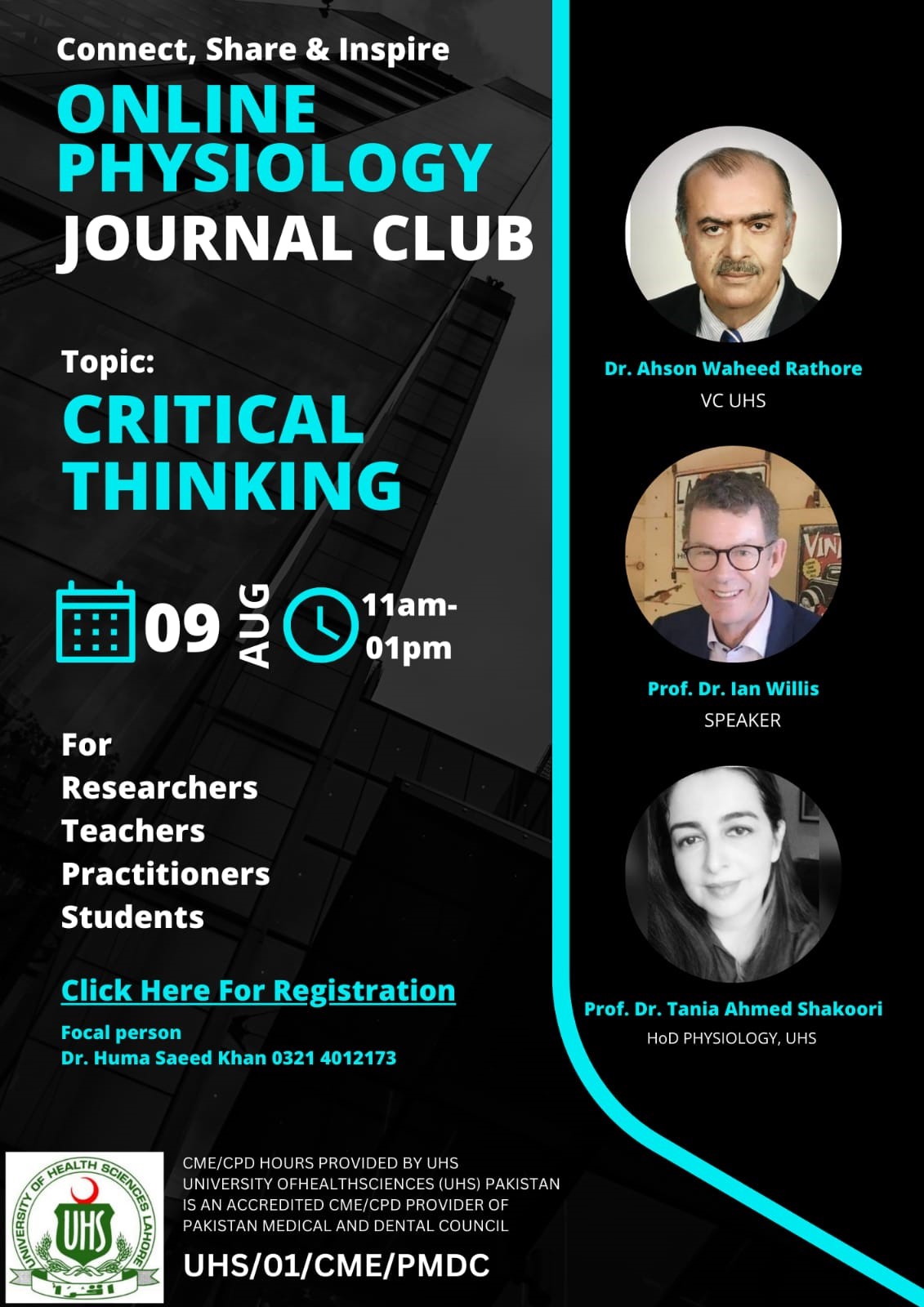 |
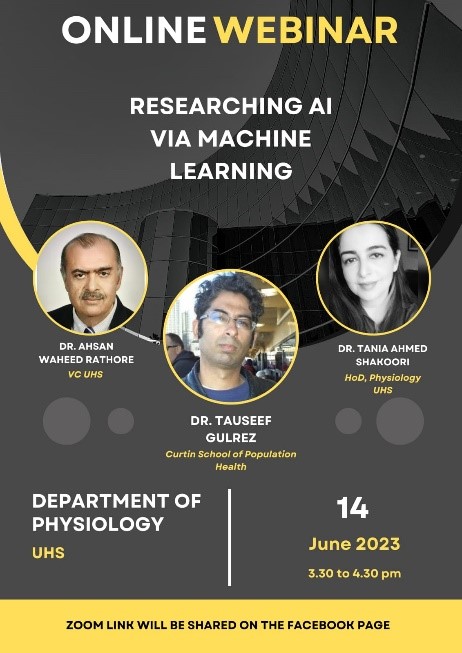 |
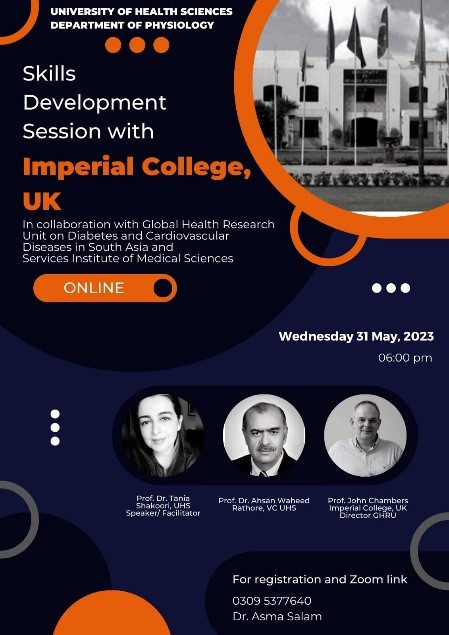 |
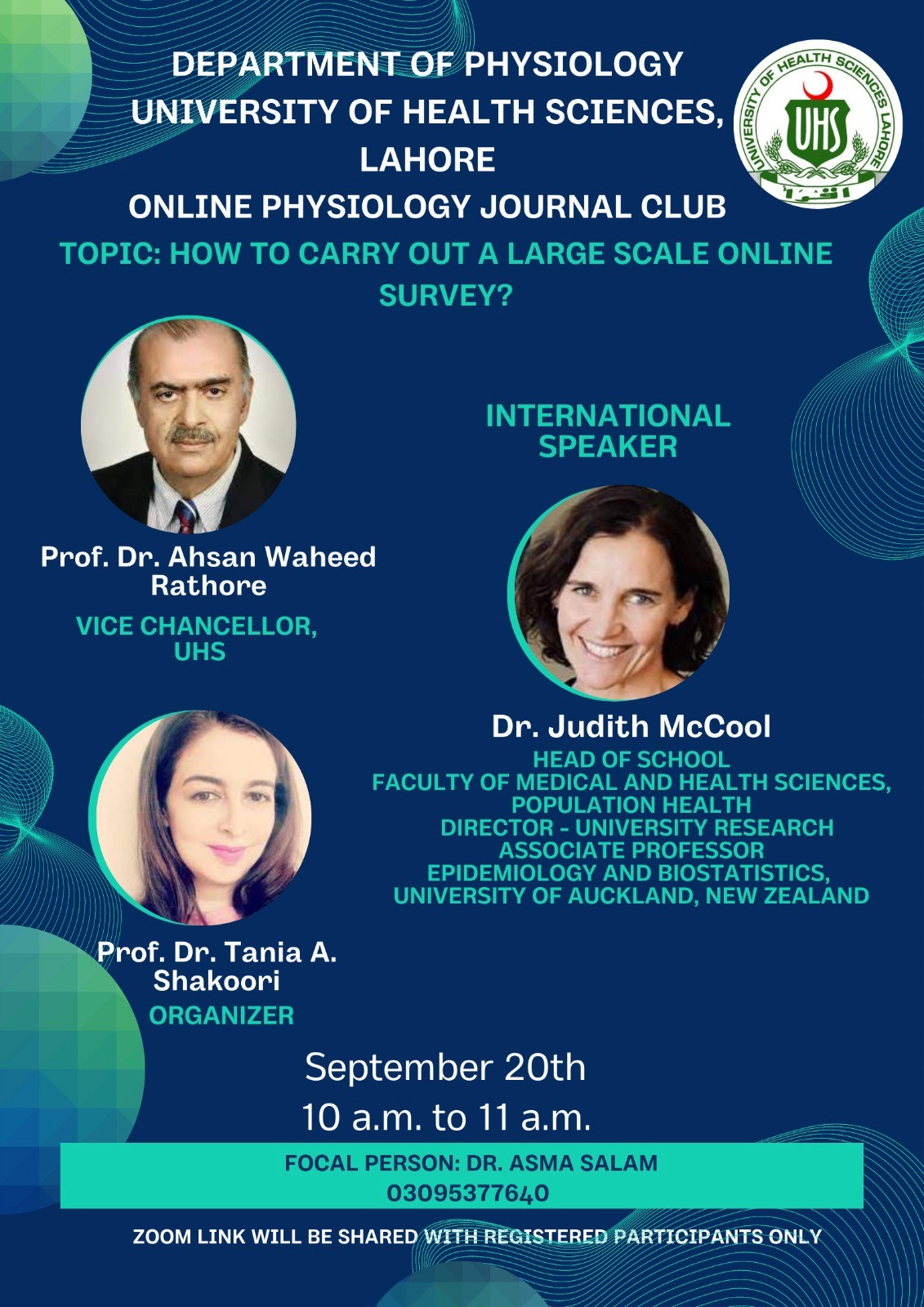 |
|


